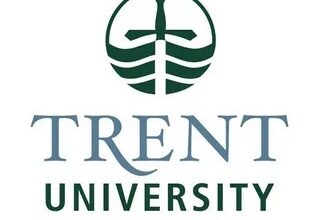How to Get a Scholarship in Canada: A Comprehensive Guide

Canada has long been a popular destination for international students due to its excellent education system, high standard of living, multicultural environment, and diverse range of scholarships for both undergraduate and graduate studies.
Scholarships in Canada are highly competitive, but with the right approach, dedication, and proper research, they can become attainable.
This article will guide you through the process of securing a scholarship to study in Canada, detailing the different types of scholarships, eligibility criteria, and tips to increase your chances of success.
Types of Scholarships in Canada
Canada offers a wide array of scholarships for both domestic and international students. Understanding the different types of scholarships is crucial as it helps you to identify the ones that best match your academic and personal profile. The main types include:
1. Government-Funded Scholarships
These scholarships are funded by the Canadian government or by provincial and territorial governments. They are designed to promote academic excellence and attract top talents from across the world.
- Vanier Canada Graduate Scholarships (Vanier CGS): This prestigious scholarship is for international Ph.D. students and is valued at CAD 50,000 per year for three years. It is aimed at attracting world-class doctoral students in the fields of health sciences, natural sciences, engineering, social sciences, and humanities.
- Canada-ASEAN Scholarships and Educational Exchanges for Development (SEED): This program provides opportunities for students from member states of the Association of Southeast Asian Nations (ASEAN) to pursue short-term studies or research in Canada.
- Global Affairs Canada Scholarships: The Canadian government offers various scholarships and fellowships for international students. These are country-specific, such as the Emerging Leaders in the Americas Program (ELAP) for students from Latin America and the Caribbean.

2. University-Specific Scholarships
Many Canadian universities offer scholarships to attract talented students. These scholarships may be merit-based, need-based, or a combination of both.
- University of Toronto Lester B. Pearson International Scholarship: This is a fully funded undergraduate scholarship that covers tuition, books, incidental fees, and full residence support for four years. It is awarded to international students who demonstrate exceptional academic achievement and creativity.
- University of British Columbia International Leader of Tomorrow (ILOT) Award: This scholarship is for undergraduate students who demonstrate superior academic achievement and leadership skills. It provides financial assistance to students who would not otherwise be able to afford a university education.
- McGill University Scholarships and Student Aid: McGill offers various entrance scholarships for international students based on academic merit. They also have a financial aid program for those demonstrating financial need.
3. Private Sector and NGO Scholarships
Private organizations, foundations, and non-governmental organizations (NGOs) often offer scholarships based on specific criteria, such as leadership, community service, or a particular field of study.
- Trudeau Foundation Scholarships: This is a competitive and prestigious scholarship for doctoral students in the social sciences and humanities. It focuses on leadership and community engagement.
- Banting Postdoctoral Fellowships: For postdoctoral students, this fellowship provides CAD 70,000 per year for up to two years. It supports applicants who have demonstrated exceptional potential in research in the fields of health, natural sciences, and social sciences.
- C.D. Howe Memorial Foundation Scholarship Fund: This scholarship supports students enrolled in engineering and commerce programs at participating universities.
4. Provincial and Territorial Scholarships
Canadian provinces and territories have their own scholarship programs that cater to students studying in those regions.
- Ontario Graduate Scholarship (OGS): This is a merit-based scholarship that is open to both domestic and international graduate students studying in Ontario. It provides CAD 10,000 to CAD 15,000 per year.
- Quebec Merit Scholarship for Foreign Students (PBEEE): This scholarship is designed for international students studying in Quebec. It offers financial support for research, doctoral, and postdoctoral students.
- British Columbia International Scholarships: Institutions in British Columbia offer a variety of scholarships and awards to international students, including entrance scholarships and leadership awards.
How to Apply for Scholarships in Canada
Securing a scholarship to study in Canada requires a well-planned and methodical approach. The following steps can help you navigate the process effectively:
1. Research Scholarship Opportunities
Begin your search by identifying the scholarships that match your profile and goals. Start with government websites, university scholarship portals, and private sector organizations. Many scholarships have specific eligibility criteria, such as nationality, academic level, field of study, and leadership skills.
Make sure to look into the deadlines and application procedures for each scholarship. Some scholarships require students to apply directly, while others may be administered through the university or a third party.
2. Meet the Eligibility Requirements
Scholarships in Canada can be very competitive, so you must meet all the eligibility requirements. These typically include:
- Academic excellence: Many scholarships are merit-based and require a high GPA.
- English or French proficiency: Most universities in Canada require proof of proficiency in English or French (depending on the language of instruction) through standardized tests like IELTS, TOEFL, or DELF.
- Field of study: Some scholarships are specific to certain fields, such as health sciences, engineering, or social sciences.
- Leadership and extracurricular involvement: Many scholarships, especially leadership-based ones, require evidence of community involvement, leadership roles, or volunteer work.
- Financial need: Need-based scholarships require proof of financial hardship or inability to fund your studies.
3. Prepare the Required Documents
Once you’ve identified suitable scholarships, prepare the necessary documents. These typically include:
- Transcripts and diplomas: Ensure your academic records are up to date and translated into English or French, if necessary.
- Letters of recommendation: Scholarships often require two or three recommendation letters from academic or professional references who can speak to your qualifications.
- Statement of purpose: Many scholarships ask for a personal statement or essay in which you explain why you deserve the scholarship, your career goals, and how your studies in Canada will contribute to your home country or society in general.
- Proof of language proficiency: If required, provide your English or French language test scores.
4. Submit Applications Early
Many scholarships have strict deadlines, and applications submitted late are usually not considered. Therefore, apply well in advance of the deadline. Some scholarships may require you to be accepted into a Canadian university before you can apply, so consider the university application process as well.
5. Ace the Interview (If Required)
Some competitive scholarships may require an interview as part of the selection process. If you’re shortlisted, make sure to prepare thoroughly. Research the scholarship, rehearse your answers to potential questions, and highlight your unique qualifications. Be confident and concise when discussing your academic background, goals, and reasons for applying.
Tips for Increasing Your Chances of Getting a Scholarship in Canada
Here are some tips to maximize your chances of winning a scholarship in Canada:
1. Start Early and Stay Organized
The earlier you start researching and applying for scholarships, the better. Scholarships can have different deadlines and requirements, so staying organized by tracking the dates and preparing documents in advance is essential.
2. Tailor Your Application
Each scholarship may have different criteria and requirements. Customize your application to each scholarship by highlighting the qualities or achievements that best match the sponsor’s goals. A generic application may weaken your chances, so always personalize it to fit the scholarship’s objectives.
3. Maintain High Academic Performance
Since many scholarships are merit-based, maintaining a high GPA is crucial. Ensure that your academic records are up to standard, as this is often the first screening criterion for most scholarships.
4. Engage in Extracurricular Activities
In addition to academic excellence, many scholarships look for candidates who have demonstrated leadership, volunteerism, and community engagement. Participate in extracurricular activities, take on leadership roles, and engage in initiatives that show your commitment to making a difference.
5. Seek Guidance from Mentors
Your professors, academic advisors, or mentors can provide valuable guidance on applying for scholarships. They may also help you with writing strong recommendation letters or reviewing your essays.
6. Apply to Multiple Scholarships
Don’t limit yourself to one scholarship application. Apply to several scholarships to increase your chances of receiving financial aid. Diversifying your applications can open up more opportunities for success.
Conclusion
Securing a scholarship in Canada is a rewarding but challenging endeavor. With careful planning, thorough research, and dedication, you can significantly improve your chances of success.
Whether applying for government-funded, university-specific, or private scholarships, focus on showcasing your academic strengths, leadership skills, and commitment to making a positive impact.
Keep track of deadlines, tailor your applications to each scholarship’s specific requirements, and stay organized throughout the process.
By following the strategies outlined in this guide, you will be well on your way to achieving your goal of studying in Canada with the financial support you need to succeed.











